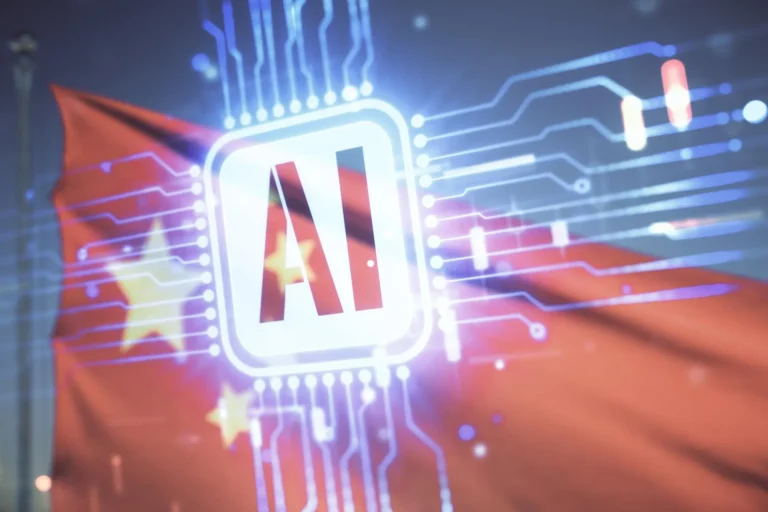Artificial intelligence (AI) is no longer just a buzzword in the tech world. It’s rapidly transforming industries, economies, and even our everyday lives. As AI continues to evolve, major tech companies are putting their money where their mouth is, investing billions to build infrastructure that supports this groundbreaking technology. Among these heavy hitters, Microsoft has recently made waves with its commitment to an eye-popping $80 billion AI initiative.
What Is AI Infrastructure?
To fully grasp the significance of AI investments, it’s important to first understand what “AI infrastructure” entails. At its core, AI infrastructure refers to the foundation of technologies, systems, and resources that are crucial for creating, deploying, and scaling artificial intelligence applications. Without this infrastructure, AI models would lack the computational power and storage they need to function effectively.
AI infrastructure covers a wide range of physical and digital elements. For instance, data centers are essential, as they serve as the physical locations where the hardware powering AI computations is housed. These facilities are designed to handle the vast computational demands of AI workloads. But it’s not just about having space to store equipment; these data centers are built with precision to ensure that machines run efficiently and reliably under high pressure.
Equally important is high-performance computing, which involves using specialized machines and processors capable of handling the intense workload of AI tasks. AI models require enormous computational power, often more than traditional computing can provide, and this is where high-performance computing comes in. It allows businesses and researchers to run complex algorithms, train machine learning models, and process vast amounts of data in record time.
Finally, AI infrastructure also relies heavily on advanced storage systems. As AI models process data, they generate vast quantities of information that need to be stored securely and accessed quickly. AI storage systems are optimized to handle the scale of data required, ensuring that models have the data they need when they need it. Additionally, networking is critical in AI infrastructure. Fast and reliable connections between systems are necessary for smooth data transfer, allowing AI applications to run seamlessly and in real-time, especially when working with cloud services or multiple distributed systems.
The Big Players in AI Infrastructure
- Amazon: Through its cloud computing division, Amazon Web Services (AWS), Amazon is heavily invested in AI infrastructure. AWS provides businesses with access to machine learning tools, data analytics, and AI-powered services. The company has invested billions in building data centers, acquiring GPUs, and developing specialized hardware to support AI workloads. AWS is a leader in AI services and is continuously innovating to enhance its capabilities in the AI space.
- Google: Google has been a pioneer in AI technology and is investing heavily in AI infrastructure through its Google Cloud division. Google offers a range of AI services, including machine learning platforms, natural language processing, and image recognition tools. Google is also investing in custom hardware like Tensor Processing Units (TPUs) to accelerate AI tasks. Their data centers are equipped to handle AI workloads, and Google is working on new AI-driven products to integrate with its search engine, advertising services, and consumer applications.
- IBM: IBM is another major player that has made significant investments in AI infrastructure. With its Watson platform, IBM is leading the way in AI research and applications across various industries, including healthcare, finance, and customer service. The company is developing AI tools and systems to support businesses in automating processes and making data-driven decisions. IBM also focuses on building scalable AI infrastructure, including data centers, cloud platforms, and specialized hardware to handle complex AI tasks.
- NVIDIA: NVIDIA is a key player in the AI infrastructure race, primarily known for its Graphics Processing Units (GPUs), which are vital for AI workloads. The company provides powerful GPUs that enable deep learning, neural network processing, and high-performance computing for AI applications. NVIDIA’s hardware is used extensively in AI research, autonomous vehicles, gaming, and more. The company continues to innovate with AI-specific chips and software to stay ahead of the competition in AI infrastructure.
Microsoft’s $80 Billion AI Initiative
| Investment Area | Description | Key Focus | Expected Impact | Strategic Goals |
| Building and Expanding Data Centers | Microsoft will build new data centers and expand existing ones worldwide to support AI workloads. | Expansion of infrastructure to handle AI computations. | Improved scalability and efficiency of AI-powered services. | Global reach for AI services, ensuring high performance. |
| Developing AI Tools and Platforms | Focus on developing AI tools, particularly for businesses to create custom AI solutions through Azure AI. | Creation of user-friendly AI platforms for enterprises. | Empower businesses to build and deploy AI models seamlessly. | Position Azure AI as a leading platform for AI development. |
| Acquisitions and Partnerships | Strategic acquisitions, like Nuance Communications, to enhance AI capabilities in healthcare and other sectors. | Strengthening AI in speech recognition and healthcare. | Expansion of AI solutions in key industries, especially healthcare. | Broaden AI expertise and solutions across industries. |
| AI Research and Development | Investment in R&D to push the boundaries of AI, focusing on more efficient models with lower computational needs. | Development of efficient AI models and technologies. | Creation of AI solutions that require less energy and computing power. | Lead in AI research and development, improving efficiency. |
The Implications of Microsoft’s AI Push
Microsoft’s substantial investment in AI infrastructure is set to bring transformative changes across a wide array of sectors. One of the most significant outcomes will be the acceleration of AI adoption and development across industries. With the expansion of Microsoft’s cloud platform, businesses of all sizes will gain easy access to powerful AI tools. This will enable them to automate complex processes, analyze massive amounts of data more effectively, and create innovative solutions that were previously out of reach. The flexibility and scalability of cloud-based AI platforms will help companies embrace AI without needing to develop their own infrastructure from scratch, which can be expensive and time-consuming.
For businesses, this push into AI infrastructure opens up a vast range of opportunities. Smaller companies, which may have limited technical resources, will now be able to leverage advanced AI capabilities just as effectively as large corporations. This levels the playing field, enabling businesses of all sizes to harness the power of automation for cost reduction and efficiency improvements. By integrating AI into their operations, companies can streamline workflows, enhance customer service through AI-powered chatbots, and make data-driven decisions that drive growth. The ability to deploy AI solutions without significant upfront investment will be a game-changer for many industries.
On the consumer side, Microsoft’s AI advancements are likely to lead to more personalized, efficient, and seamless experiences. As the company’s AI capabilities continue to evolve, consumers can expect smarter virtual assistants, more intuitive applications, and better-tailored recommendations. AI-driven products will become an integral part of daily life, from personalized shopping experiences to more efficient smart home devices. Microsoft’s commitment to AI means that consumers will benefit from increased convenience, improved services, and more advanced technologies that make everyday tasks easier and more enjoyable. As AI continues to progress, we can anticipate even more innovations that enhance the quality of life for users across the globe.
Challenges in Building AI Infrastructure
- High Costs of Infrastructure: Building and maintaining the infrastructure necessary for AI is a complex and expensive endeavor. Companies must invest heavily in advanced hardware, sophisticated software, and global data centers capable of handling massive amounts of data and computation. These costs can escalate quickly, especially when considering the need to hire highly skilled talent and scale operations to meet increasing demand. The financial burden of maintaining cutting-edge AI infrastructure is one of the biggest challenges faced by companies in this space.
- Data Privacy Concerns: Data is the backbone of AI, but with this comes significant privacy issues. Companies must navigate a maze of complex regulations like the General Data Protection Regulation (GDPR) to ensure they are collecting, processing, and storing user data responsibly. Striking a balance between utilizing large datasets to improve AI models and protecting user privacy can be difficult, especially when dealing with sensitive information. Companies must develop robust security measures and adhere to legal guidelines to avoid potential breaches and fines.
- Ethical Considerations: As AI technology evolves, it raises numerous ethical concerns. One of the primary issues is the potential for bias in AI algorithms, which can lead to unfair or discriminatory outcomes. Additionally, there are broader concerns about how AI-driven automation will impact jobs and industries. As tech companies push forward with AI development, they must consider these ethical challenges and work to mitigate any negative societal effects. Ensuring that AI is developed and deployed in a way that benefits all stakeholders is a critical aspect of addressing the ethical implications of this powerful technology.
The Future of AI Infrastructure
| Emerging Trends | Description | Impact on AI Infrastructure | Key Technologies Involved | Potential Benefits |
| Increasing Demand for Computing Power | As AI models become more advanced, they will require significantly more computational power to handle complex tasks. | AI infrastructure will need to scale to support more powerful and efficient hardware. | High-performance computing, GPUs, custom AI chips. | Improved model accuracy and performance for a range of industries. |
| AI for the Metaverse | The metaverse will rely heavily on AI for user interaction, content creation, and real-time processing. | AI infrastructure will be crucial for the metaverse’s success, enabling seamless virtual experiences. | Natural language processing, real-time rendering, virtual assistants. | More immersive and personalized virtual environments. |
| Quantum Computing and AI | Quantum computing could revolutionize AI by enabling faster calculations and solving complex problems more efficiently. | AI infrastructure will evolve to incorporate quantum computing, requiring new hardware and algorithms. | Quantum computers, quantum algorithms, advanced AI models. | Accelerated AI model training, more efficient problem-solving. |
| Collaboration and Competition | Increased collaboration and competition among tech companies as they push to dominate the AI space. | Companies will enhance their AI capabilities through strategic partnerships and investments. | Cloud computing, AI platforms, shared research initiatives. | Faster innovation and more accessible AI solutions for businesses. |
| AI in Healthcare, Finance, and Other Sectors | AI infrastructure will continue to revolutionize key industries, enabling more effective and efficient solutions. | Companies will invest in specialized AI infrastructure tailored to sectors like healthcare, finance, and manufacturing. | AI-driven analytics, machine learning platforms, personalized AI tools. | Improved healthcare outcomes, financial forecasting, and process automation. |
The Bottom Line
Microsoft’s $80 billion commitment to AI infrastructure highlights the company’s vision of AI as not just a distant possibility, but a tangible reality that is already reshaping the technological landscape. With this massive investment, Microsoft is positioning itself at the forefront of the AI revolution, aiming to lead in both the development and deployment of AI-powered tools and services. The company’s plans to expand its AI capabilities will drive innovation across multiple industries, enabling businesses to unlock new levels of efficiency and intelligence.
As other major tech companies follow suit, the competition to build the most powerful and scalable AI infrastructure is intensifying. Tech giants like Amazon, Google, and IBM are ramping up their own investments, each striving to provide the best AI services to businesses and consumers alike. This competitive environment is only expected to fuel faster advancements in AI, with more powerful applications emerging to meet the growing demand for automation, data analysis, and intelligent decision-making.
For businesses and consumers, this ongoing AI infrastructure boom promises a future filled with even more advanced and accessible AI tools. As these investments continue to grow, we can expect AI to play a central role in transforming how we live, work, and interact with the world. From personalized services to improved efficiency in business operations, AI is poised to drive significant changes across all sectors.
This AI infrastructure boom is not just about building smarter machines—it represents the foundation of a new era in technological innovation. The companies that can effectively harness and deploy AI will have the potential to shape industries, create new markets, and drive economic growth. As the race for AI dominance heats up, it’s clear that the future is bright, and AI will be at the heart of it all. The question now is: who will emerge as the next major player to make its move in this exciting, fast-evolving field?




